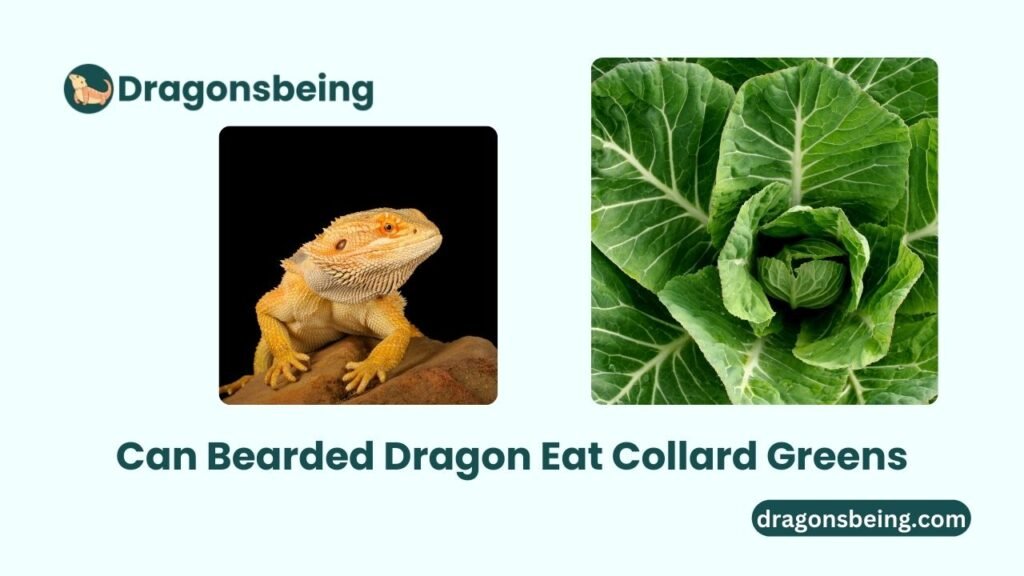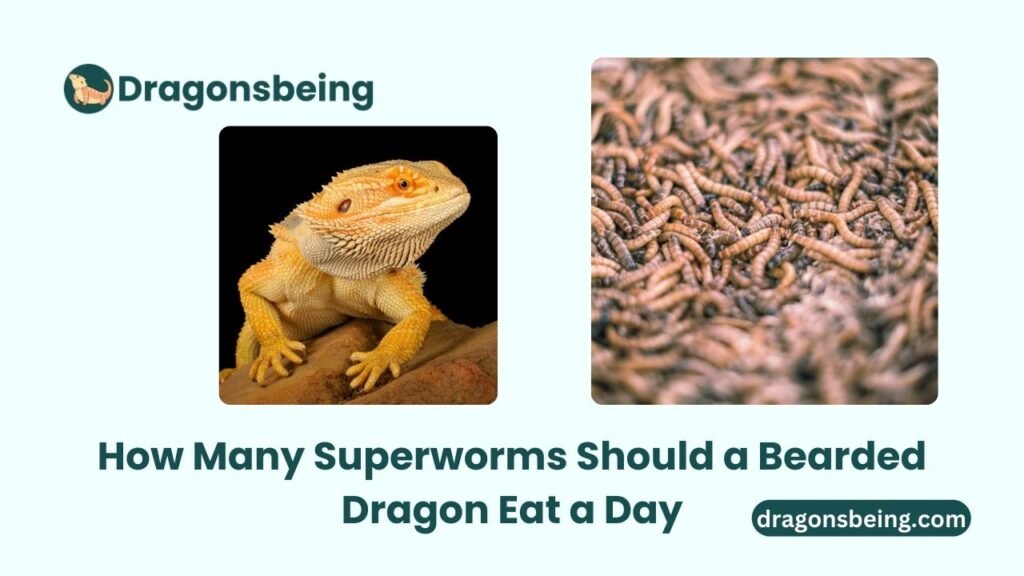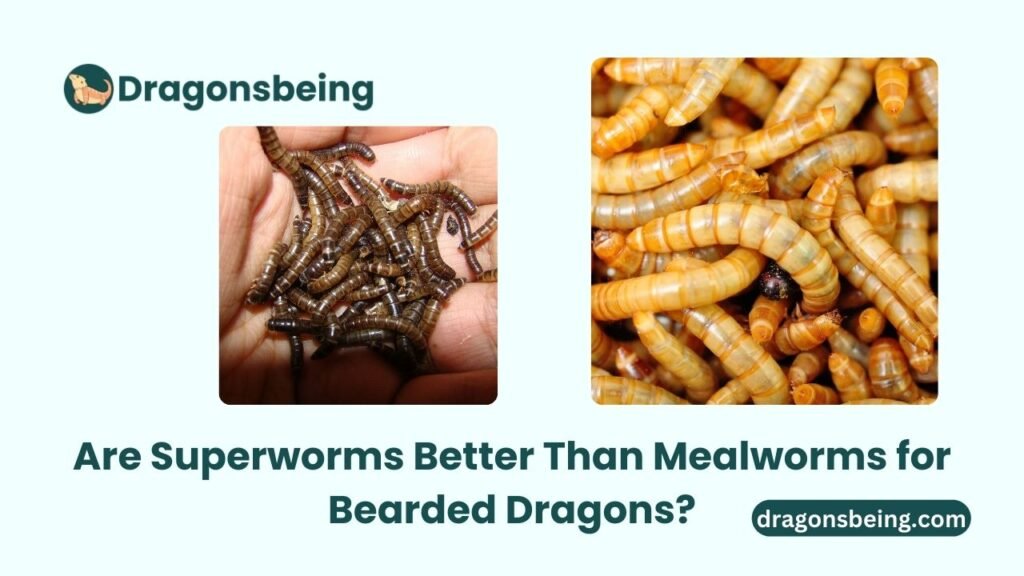Yes, bearded dragons can eat collard greens. These leafy greens provide essential nutrients and can be a healthy part of their diet.
Collard greens are a nutritious option for bearded dragons. They offer vitamins A, C, and K and support reptiles’ overall health and digestion.
Including collard greens in their diet can help prevent nutritional deficiencies. It’s crucial to chop them into manageable pieces to make eating easier.
Always wash the greens thoroughly to remove pesticides. While collard greens are beneficial, they should be part of a varied diet.
Combine them with other vegetables and occasional protein sources for a balanced meal. Regularly offering different foods keeps your bearded dragon interested and healthy.
The Nutritional Value Of Collard Greens
Collard greens offer excellent nutrition for many creatures, including bearded dragons. These leafy greens are packed with essential nutrients. They can support your pet’s health when served correctly.
Key Vitamins And Minerals
Collard greens are rich in several important vitamins and minerals:
| Vitamin/Mineral | Benefits |
|---|---|
| Vitamin A | Supports vision and immune function. |
| Vitamin C | Boosts the immune system and aids in healing. |
| Calcium | Essential for bone health and growth. |
| Iron | Helps in oxygen transport and energy production. |
Fiber Content And Its Benefits
Collard greens have a high fiber content. This fiber is crucial for digestion.
- Promotes healthy bowel movements.
- Prevents constipation.
- Improves overall gut health.
Feeding fiber-rich foods helps maintain a balanced diet. It supports your bearded dragon’s digestive system.
Benefits Of Including Collard Greens In A Bearded Dragon’s Diet
Collard greens are a nutritious choice for your bearded dragon. They provide essential vitamins and minerals. Including collard greens can support overall health and vitality. Let’s explore the key benefits.
Supporting Digestive Health
Collard greens are rich in fiber. Fiber aids in digestion and helps prevent constipation. A healthy digestive system is vital for your bearded dragon’s well-being.
- Promotes regular bowel movements
- Reduces the risk of impaction
- Enhances nutrient absorption
Feeding collard greens regularly can keep your pet’s digestive system functioning smoothly.
Enhancing Skin And Bone Health
Collard greens are loaded with calcium. Calcium is crucial for strong bones and healthy skin. Bearded dragons need calcium to prevent metabolic bone disease.
| Nutrient | Benefit |
|---|---|
| Calcium | Strengthens bones and prevents disease |
| Vitamin A | Promotes healthy skin and vision |
| Vitamin K | Supports blood clotting and bone health |
Including collard greens ensures your bearded dragon thrives. A balanced diet leads to a happier, healthier pet.
How To Prepare Collard Greens For Bearded Dragons
Preparing collard greens for your bearded dragon is simple. Proper preparation ensures your pet enjoys a healthy meal. Let’s explore the steps for washing, chopping, and deciding between raw and cooked greens.
Washing And Chopping
Before serving collard greens, proper washing is essential. Follow these steps:
- Rinse: Place collard greens under cold running water.
- Remove Debris: Use your hands to scrub the leaves gently.
- Dry: Pat the leaves dry with a clean towel.
Next, chop the greens into bite-sized pieces. This makes it easier for your bearded dragon to eat. Keep the pieces small, about 1 inch long. Avoid sharp edges to prevent injury.
Raw Vs. Cooked: Best Practices
Bearded dragons can eat collard greens either raw or cooked. Each method has its benefits:
| Preparation Method | Benefits |
|---|---|
| Raw |
|
| Cooked |
|
For cooking, steam collard greens for a few minutes. Avoid boiling, as it loses nutrients. Allow the greens to cool before serving. Always chop cooked greens into small pieces.
Serving Size And Frequency
Understanding the right serving size and frequency is essential for your bearded dragon’s health. Collard greens are nutritious, but moderation is key. Let’s explore how to serve these greens effectively.
Determining The Right Amount
Determining the right amount of collard greens is crucial for a balanced diet. Adult bearded dragons require different portions than juveniles.
- Adults: 1-2 cups of chopped collard greens per week.
- Juveniles: ½ cup of collard greens, 2-3 times a week.
Always chop collard greens into small, manageable pieces. This prevents choking and makes eating easier.
Incorporating Collard Greens Into The Weekly Diet
Incorporating collard greens into your bearded dragon’s diet can be simple. Follow these guidelines:
- Mix collard greens with other leafy greens for variety.
- Rotate different vegetables each week for balanced nutrition.
- Observe your dragon’s reaction to new foods.
Track how often you serve collard greens. This helps maintain a healthy routine.
| Age Group | Recommended Serving Size | Frequency |
|---|---|---|
| Juvenile | ½ cup | 2-3 times a week |
| Adult | 1-2 cups | Once a week |
Keep your bearded dragon’s health in check. Monitor their weight and energy levels. Adjust serving sizes as needed.
Potential Risks And Considerations
Feeding your bearded dragon collard greens is beneficial. Yet, some risks exist. Understanding these risks helps ensure your pet’s health.
Oxalates And Their Impact
Collard greens contain oxalates. These are natural compounds that can affect calcium absorption.
- High oxalate levels can lead to kidney stones.
- Oxalates bind with calcium, reducing its availability.
- Bearded dragons need calcium for strong bones.
Limit collard greens in their diet. This helps reduce oxalate intake.
Symptoms Of Overfeeding
Feeding too many collard greens can cause health issues. Watch for these symptoms:
- Diarrhea
- Weight loss
- Lethargy
- Vomiting
Keep an eye on your bearded dragon’s eating habits. Balance their diet with other vegetables.
| Symptom | Possible Cause |
|---|---|
| Diarrhea | Overfeeding collard greens |
| Weight loss | Insufficient nutrition |
| Lethargy | Imbalance in diet |
| Vomiting | Digestive issues |
Other Greens And Vegetables Suitable For Bearded Dragons
Bearded dragons thrive on a diverse diet. While collard greens are excellent, other greens and vegetables also offer vital nutrients. A varied diet keeps your pet healthy and happy.
Safe Alternatives To Collard Greens
Several greens and vegetables can replace collard greens. Here are some safe options:
- Mustard Greens – Rich in calcium and vitamins.
- Turnip Greens – High in fiber and low in oxalates.
- Romaine Lettuce – Hydrating and easy to digest.
- Endive – Provides a crunchy texture and good nutrients.
- Swiss Chard – Offers vitamins but should be given sparingly.
These options keep your bearded dragon’s meals interesting. Always wash greens thoroughly to remove pesticides.
Variety: The Key To A Balanced Diet
Variety is essential for a bearded dragon’s diet. Different vegetables provide unique benefits:
| Vegetable | Nutritional Benefits |
|---|---|
| Carrots | High in beta-carotene and good for eyesight. |
| Bell Peppers | Rich in vitamins A, C, and antioxidants. |
| Zucchini | Low in calories, high in hydration. |
| Squash | Offers fiber and aids digestion. |
Mixing different greens and vegetables ensures a balanced intake of nutrients. Rotate options to keep meals exciting.
Expert Tips For A Healthy Bearded Dragon Diet
Providing a healthy diet for your bearded dragon is crucial. Proper nutrition keeps them happy and active. Here are some expert tips to ensure a balanced diet.
Consulting With A Veterinarian
Always consult a veterinarian for dietary advice. They can help you understand your bearded dragon’s specific needs. Here are some key points:
- Choose a vet experienced with reptiles.
- Ask about dietary supplements.
- Schedule regular check-ups for health monitoring.
Creating A Balanced And Nutritious Meal Plan
A balanced diet includes vegetables, fruits, and insects. Collard greens are a great choice for leafy greens. Here’s how to create a nutritious meal plan:
| Food Type | Recommended Amount | Frequency |
|---|---|---|
| Leafy Greens (e.g., Collard Greens) | 30-50% of diet | Daily |
| Fruits (e.g., Berries) | 10-20% of diet | 2-3 times a week |
| Insects (e.g., Crickets) | 30-50% of diet | Every other day |
Include a variety of vegetables for essential nutrients. Here are some recommended veggies:
- Mustard Greens
- Turnip Greens
- Squash
Always wash vegetables thoroughly. Chop them into small pieces. This makes it easier for your bearded dragon to eat.
Monitor your dragon’s weight and health. Adjust the diet as needed. A healthy diet leads to a happy bearded dragon.
Frequently Asked Questions
Can Bearded Dragons Eat Collard Greens Daily?
Yes, collard greens can be part of a bearded dragon’s daily diet in moderation.
What Nutrients Do Collard Greens Provide?
Collard greens offer vitamins A, C, and K, along with calcium and fiber, essential for bearded dragons.
How Should Collard Greens Be Prepared?
Wash collard greens thoroughly, chop them into small pieces, and serve them fresh or slightly wilted.
Are Collard Greens Safe For Baby Bearded Dragons?
Baby bearded dragons can eat collard greens, but serve in smaller amounts to avoid digestive issues.
What Other Greens Can Bearded Dragons Eat?
Bearded dragons can enjoy kale, mustard greens, and dandelion greens as healthy alternatives to collard greens.
Can Collard Greens Cause Any Health Issues?
Overfeeding collard greens may lead to calcium imbalance; always mix with other vegetables for balanced nutrition.
Conclusion
Feeding your bearded dragon collard greens can be beneficial. These greens provide essential nutrients and hydration. Always ensure they are fresh and properly prepared. Balance their diet with other vegetables and insects for optimal health. Regularly monitor your dragon’s reaction to new foods for a happy, thriving pet.

Hi, I’m Dr. Michelle Mayers, a veterinary professional with a deep passion for animal health and well-being. Over the years, I’ve dedicated my life to caring for animals and helping pet owners better understand their furry, feathered, or scaly companions. On my blog, Dragonsbeing, I share insights, tips, and stories that aim to educate, inspire, and connect with fellow animal lovers. Join me at Dragonsbeing as we explore the fascinating world of veterinary care and celebrate the special bond between humans and animals!


